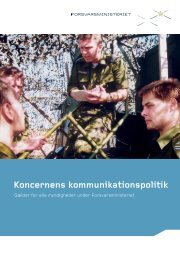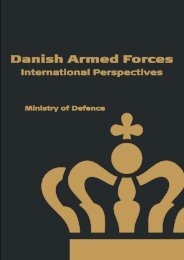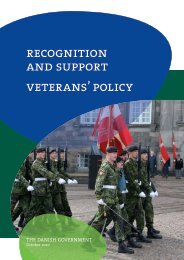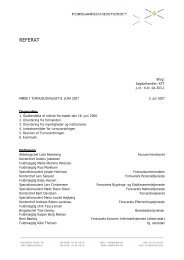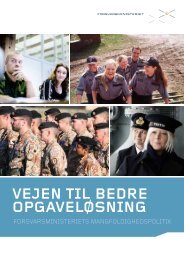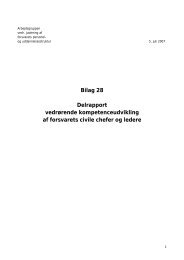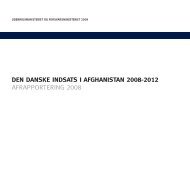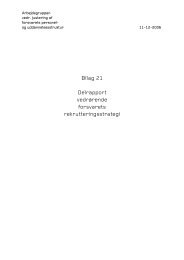Afghanistan Report 2009 - Isaf - Nato
Afghanistan Report 2009 - Isaf - Nato
Afghanistan Report 2009 - Isaf - Nato
You also want an ePaper? Increase the reach of your titles
YUMPU automatically turns print PDFs into web optimized ePapers that Google loves.
National Level<br />
The most important contribution we can now<br />
make to <strong>Afghanistan</strong> is a massive and coherent<br />
institution-building programme. Institutionbuilding<br />
does not provide occasions for ribboncutting<br />
ceremonies or photo opportunities. But it<br />
is the key to enabling <strong>Afghanistan</strong> to stand on its<br />
own feet – and to any international exit strategy.<br />
Ambassador Kai Eide, Special Representative of the UN<br />
Secretary General, March <strong>2009</strong><br />
Afghan women parliamentarians are playing an increasing<br />
role in strengthening governance throughout <strong>Afghanistan</strong>.<br />
Since the Bonn Agreement in 2001, the International<br />
Community’s efforts have focused on developing<br />
government institutions that are effective, credible<br />
and capable of delivering basic services to the<br />
population throughout the country. At the national<br />
level, the Afghan Government and the International<br />
Community continue to cooperate on strengthening<br />
the cross-cutting and core capabilities of the State as<br />
defined by the ANDS.<br />
Governance<br />
The United Nations Development Programme (UNDP)<br />
has a pivotal role in helping establish viable governance<br />
structures. Many major programmes aimed at<br />
state-building, democracy and civil society empowerment<br />
come under the UNDP umbrella, and are<br />
coordinated by the Joint Coordination and Monitoring<br />
Board ( JCMB ) 11 . Programmes include civil service<br />
capacity building and reform at the central and<br />
sub-national levels, financial accountability, communications<br />
development/information management<br />
within ministries, and strengthening the country’s<br />
judicial system and counter-narcotics functions.<br />
11<br />
The JCMB is a coordination body for the implementation of<br />
the <strong>Afghanistan</strong> Compact consisting of representatives of<br />
the Afghan Government and the International Community<br />
(IC). It provides direction to address issues of coordination,<br />
implementation and financing for the benchmarks and timelines<br />
of the Compact and reports on the implementation.<br />
PROGRAMMES TO<br />
STRENGTHEN GOVERNANCE<br />
There are several programmes currently in place<br />
to help strengthen governance, including :<br />
• Enhancing Legal and Electoral Capacity for<br />
Tomorrow ( ELECT provides, amongst other<br />
things, capacity building to the Independent<br />
Election Commission );<br />
• Support to the Establishment of the Afghan<br />
Legislature ( SEAL supports the development<br />
of a more effective Afghan Parliament by<br />
strengthening its legislative, oversight and<br />
representative capacities );<br />
• Capacity for the Afghan Public Service<br />
Programme ( CAP focuses on providing<br />
coaching to senior civil servants and basic<br />
management and administration services at<br />
provincial and district levels );<br />
• Law and Order Trust Fund for <strong>Afghanistan</strong><br />
( LOTFA covers nationwide payment of<br />
police staff salaries, institutional development,<br />
acquisition of non-lethal equipment<br />
or rehabilitation of police facilities );<br />
• <strong>Afghanistan</strong> Sub-national Governance<br />
Programme ( ASGP focuses on public administrative<br />
reform at central and provincial<br />
level );<br />
• Access to Justice at the District Level ( AJDL ).<br />
20



